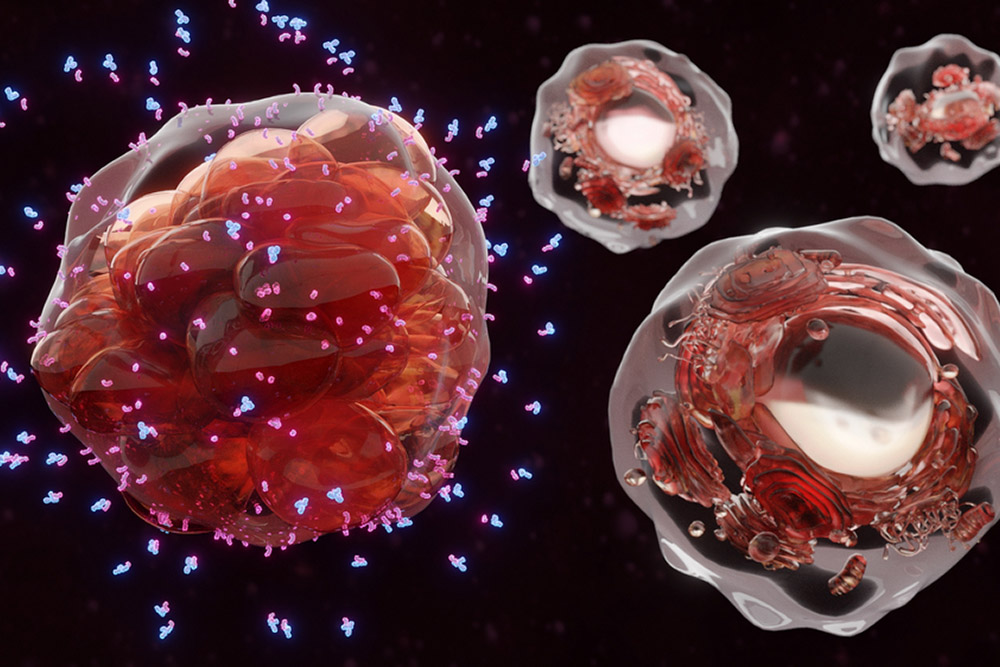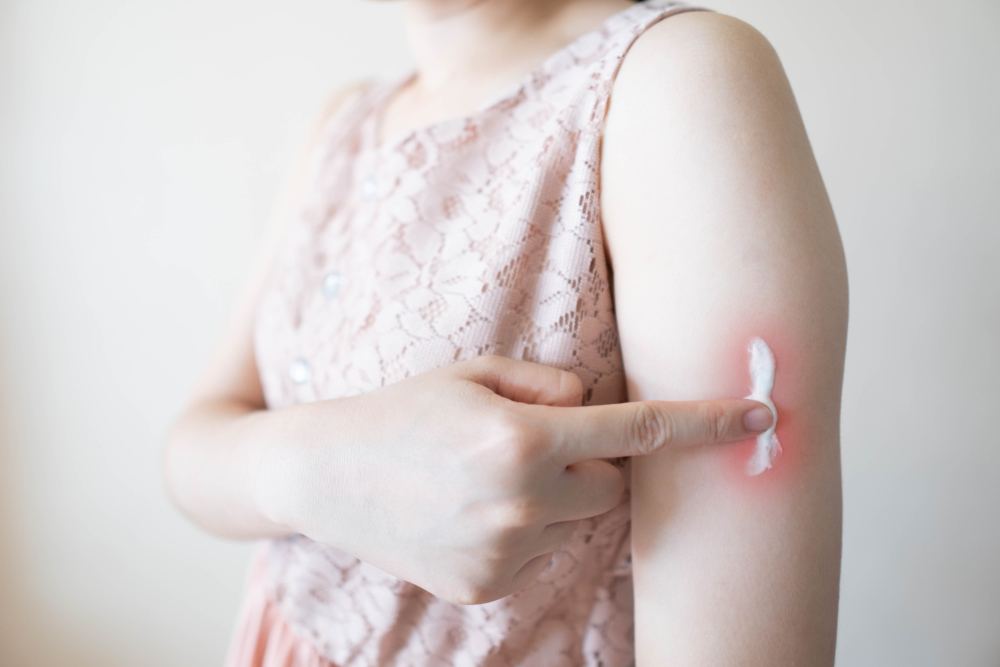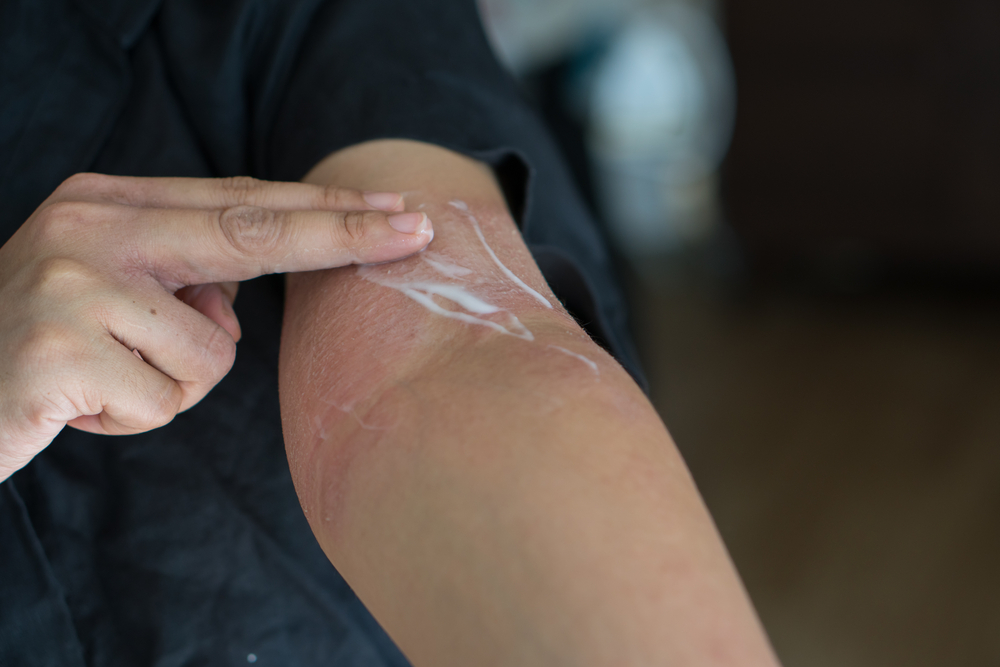Exploring Infectious Complications in Atopic Dermatitis: Key Factors and Prevention Strategies

Authors of a review examined infectious complications in atopic dermatitis (AD). Key contributing factors identified include skin barrier defects, type 2 inflammation, Staphylococcus aureus colonization, and cutaneous dysbiosis. Prevention strategies for AD-related infections prioritize skin barrier enhancement and anti-inflammatory treatments. Additional research is required to establish the appropriate use of antibiotics in AD exacerbations, given the significant comorbidity of infectious complications.
Diagnostic Tool Streamlines Atopic Dermatitis Identification and Treatment

This diagnostic tool assists clinicians in identifying atopic dermatitis, providing resources in areas such as diagnostic criteria, associated conditions, and treatment. Key diagnostic indicators include pruritus, chronic eczema, and characteristic patterns. The tool also highlights the need to assess itch intensity, sleep disruption, daily impact, and psychological aspects during follow up, advising alternative diagnoses or specialist consultation if treatments are ineffective.
Educational Series Explores Cytokines in Atopic Dermatitis and Advances in Treatment

In part one of this two-part video-based educational series, Dr. Christopher Bunick provides an overview of the cytokines involved in atopic dermatitis (AD), focusing on type I and type II receptors. The series delves into skin itch in inflammatory skin disorders, particularly exploring cytokine roles in AD pathogenesis. It also discusses the unmet needs and recent innovations in topical itch treatments, along with strategies for enhancing patient care.
Unpacking the Complexities of Severe Eczema: Infections, Allergies, Asthma, and More

A medically-reviewed article from WebMD analyzed the complications of severe eczema. Beyond itchy skin, severe eczema brings risks of infections, allergies, and asthma, as well as sleepless nights, fatigue, and even depression. Adults face isolation, eye problems, and job disruptions due to the condition. Long-term health concerns like heart disease may be linked, though research continues.
Prolonged Corticosteroid Treatment in Atopic Dermatitis Raises Concerns

Researchers of a study found that prolonged corticosteroid treatment for atopic dermatitis (AD) had negative effects on both adults and children. While topical corticosteroids (TCS) are commonly used for AD, their prolonged use can lead to issues like topical steroid withdrawal syndrome. Researchers of the study, involving 2,160 participants, raised concerns about TCS cumulative effects, including worsened symptoms and adverse events.
Video Commentary Explores Pollution-Atopic Dermatitis Connection and Tapinarof Treatment Potential

In a video commentary, Karan Lal, DO, MS, explores the link between environmental pollutants and atopic dermatitis (AD) flares, focusing on the AhR pathway’s role in inflammation and itch caused by pollutants. Tapinarof cream, which targets AhR, holds potential for AD treatment, particularly in polluted urban areas. Dr. Lal stresses the need to educate patients about the effects of factors like smoking on AD, as they can activate the AhR pathway, potentially exacerbating the condition.
Study Sheds Light on Microbiome’s Impact in Atopic Dermatitis and Biotherapeutic Prospects

Research shows that the skin microbiome, crucial in interacting with the host, is disrupted in atopic dermatitis (AD) by an excess of S. aureus and less diversity. Early life emerges as a key period for shaping immune responses, indicating a potential window for AD microbiome interventions. Current studies on the microbial differences between healthy and AD skin have spurred clinical trials of biotherapeutics to address AD microbiome dysbiosis, indicating potential in microbiome-based treatments.
Study Reveals Olive-Derived Fiber’s Positive Impact on Atopic Dermatitis and Gut Microbiota

A recent study explores the impact of olive-derived antioxidant dietary fiber (OADF) on atopic dermatitis (AD) and gut microbiota in mice. Mice fed with OADF showed significant improvement in AD symptoms, evidenced by changes in various immunological markers. OADF also positively altered the gut microbiota. These findings highlight OADF’s potential as a dietary therapeutic agent in managing AD through modulating the gut-skin axis and immune responses.

